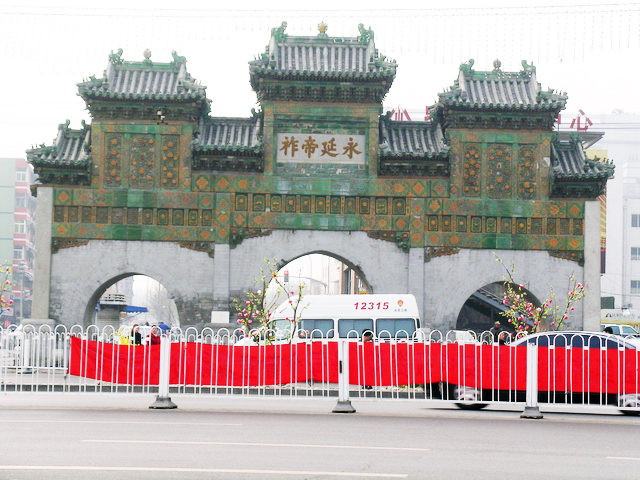Chaoyangmen Outer Street on:
[Wikipedia]
[Google]
[Amazon]
 Chaoyangmen Outer Street () is a major through route in
Chaoyangmen Outer Street () is a major through route in
 Chaoyangmen Outer Street () is a major through route in
Chaoyangmen Outer Street () is a major through route in Beijing
Beijing, Chinese postal romanization, previously romanized as Peking, is the capital city of China. With more than 22 million residents, it is the world's List of national capitals by population, most populous national capital city as well as ...
, China
China, officially the People's Republic of China (PRC), is a country in East Asia. With population of China, a population exceeding 1.4 billion, it is the list of countries by population (United Nations), second-most populous country after ...
, and runs through the Chaowai area near Chaoyangmen
Chaoyangmen (; Manchu:; Möllendorff:šun be aliha duka) was a gate in the former city wall of Beijing. It is now a transportation node and a district border in Beijing. It is located in the Dongcheng District of northeastern central Beijing. R ...
. Geographically, it is in the eastern urban area, and is still considered very close to the city centre even though it lies outside the 2nd Ring Road. It is north of a similarly significant area, the future Beijing CBD.
Chaoyangmen Outer Street runs from Chaoyangmen
Chaoyangmen (; Manchu:; Möllendorff:šun be aliha duka) was a gate in the former city wall of Beijing. It is now a transportation node and a district border in Beijing. It is located in the Dongcheng District of northeastern central Beijing. R ...
Bridge through to the massive Dongdaqiao
Dongdaqiao () is a station on Line 6 of the Beijing Subway. This station opened on December 30, 2012.
Station layout
The station has an underground island platform
An island platform (also center platform (American English) or centre plat ...
crossing. In its path lie office blocks, shopping areas, and technology stores (including the Bainaohui area), making it one of the busiest streets in Beijing. Traffic is often congested, especially near the nodal points Chaoyangmen and Dongdaqiao.
History
13th–19th century
Chaoyangmen was originally called "Qihuamen". Chaoyangmenwai Street is the road to the Qiyangmen Gate during theYuan dynasty
The Yuan dynasty ( ; zh, c=元朝, p=Yuáncháo), officially the Great Yuan (; Mongolian language, Mongolian: , , literally 'Great Yuan State'), was a Mongol-led imperial dynasty of China and a successor state to the Mongol Empire after Div ...
, the Chaoyangmen Guanxiang area during the Ming
The Ming dynasty, officially the Great Ming, was an imperial dynasty of China that ruled from 1368 to 1644, following the collapse of the Mongol-led Yuan dynasty. The Ming was the last imperial dynasty of China ruled by the Han people, t ...
and Qing dynasties and the Republic of China
Taiwan, officially the Republic of China (ROC), is a country in East Asia. The main geography of Taiwan, island of Taiwan, also known as ''Formosa'', lies between the East China Sea, East and South China Seas in the northwestern Pacific Ocea ...
. During the Qing dynasty
The Qing dynasty ( ), officially the Great Qing, was a Manchu-led Dynasties of China, imperial dynasty of China and an early modern empire in East Asia. The last imperial dynasty in Chinese history, the Qing dynasty was preceded by the ...
the road was paved.
Over the years, many temples were built along Chaoyangmenwai Street, among them the Tianxian Temple (built during the Ming dynasty, destroyed), Jiutian Puhua Palace (built 1647 during the Qing dynasty), Dongyue Temple (built in the Yuan dynasty), and Ci Zun Temple (destroyed). Dongyue Temple is located in the central section of Chaoyangmenwai Street.
20th–21st century
In 1942 the road was repaved. After the founding of the People's Republic of China, the asphalt pavement was widened and refurbished in 1953. In 1988, a large-scale expansion and reconstruction was carried out. In 1990 the street was extended eastward to the East Third Ring Road and was connected to Chaoyang Road. In the 1950s, the east and west arches on Chaoyangmenwai Street were demolished. Since the 1950s, Dongyue Temple was occupied by a unit of the Beijing Municipal Public Security Bureau. In 1988, the gates facing Chaoyangmenwai Street were dismantled, thus making the bell tower, the drum tower and the two doors directly face each other. After renovation in 1998, it was opened as a Beijing Folk Museum. In 2008, Dongyue Temple was restored as a place of religious activity. Since then, it has the dual functions of museum and Taoist temple. Office buildings and retail along Chaoyangmen Outer Street received a major boost in 1996 when China opened itsMinistry of Foreign Affairs
In many countries, the ministry of foreign affairs (abbreviated as MFA or MOFA) is the highest government department exclusively or primarily responsible for the state's foreign policy and relations, diplomacy, bilateral, and multilateral r ...
on this arterial. Other high rises that were built along Chaoyangmen Outer Street include: China Life Tower, Chaoyangmenwai Soho, Guangyao Apartment Tower, Guoan Mansion, Jingguang Centre, and the World Financial Center. Beijing's new CBD is developing to the south of Chaoyangmenwai Street.
Attractions
* The famousBeijing Dongyue Temple
The Temple of the Eastern Peak in Beijing () is a
Taoist temple in the Chaowai area, Chaoyang District, Beijing, China. The temple is dedicated to the Great Deity of the Eastern Peak (). "Eastern Peak" is the cosmological name of Mount Tai, th ...
(built and developed 1319 and onwards) is located along Chaoyangmen Outer Street. It is a national cultural spot of China and hosts the Beijing Folk Customs Museum.
* Pfidang or Memorial archway, a glazed tile archway opposite Dongyue Temple's Sun Gate, on the south side of Chaoyangmen Outer Street and at the entrance of Shenlu Street.
References
{{Roads and expressways of Beijing, state=collapsed Streets in Beijing Road transport in Beijing Chaoyang District, Beijing